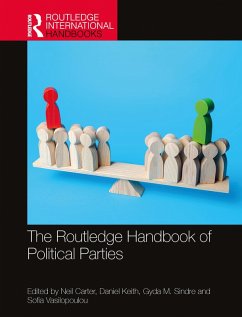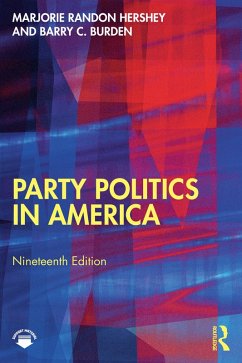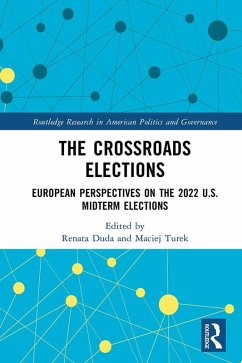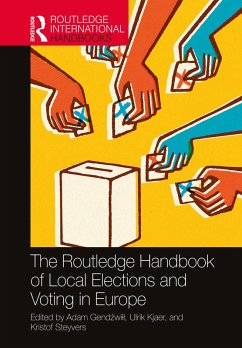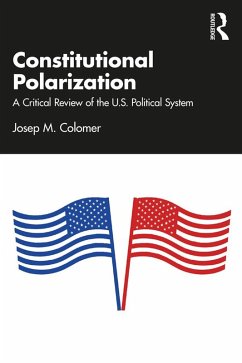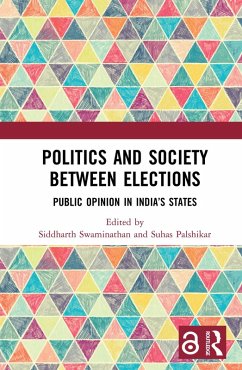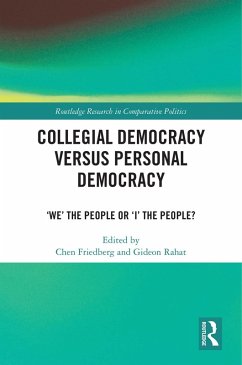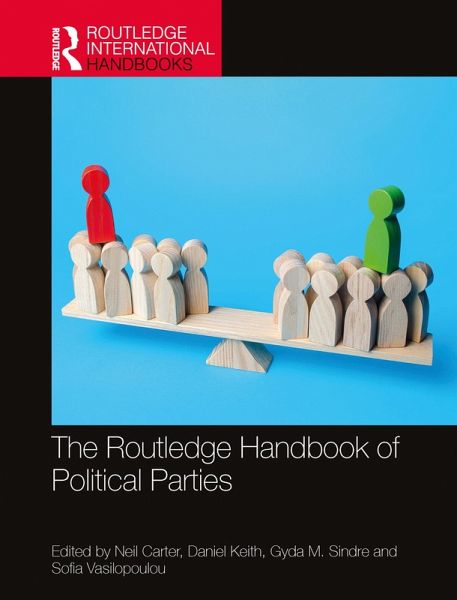
The Routledge Handbook of Political Parties (eBook, ePUB)
Versandkostenfrei!
Sofort per Download lieferbar
47,95 €
inkl. MwSt.
Weitere Ausgaben:

PAYBACK Punkte
24 °P sammeln!
The Routledge Handbook of Political Parties provides a systematic and comprehensive overview of the study of political parties provided by leading experts in the field.In an era of widespread political disillusionment, political parties are often the main targets of citizen dissatisfaction, yet they are the key institutions that make democracy work. Analysing political parties in unrivalled depth and breath, with comparative thematic chapters throughout, as well as a dedicated section on political parties and party politics in specific country and regional settings, this handbook examines and ...
The Routledge Handbook of Political Parties provides a systematic and comprehensive overview of the study of political parties provided by leading experts in the field.
In an era of widespread political disillusionment, political parties are often the main targets of citizen dissatisfaction, yet they are the key institutions that make democracy work. Analysing political parties in unrivalled depth and breath, with comparative thematic chapters throughout, as well as a dedicated section on political parties and party politics in specific country and regional settings, this handbook examines and illuminates the key questions around: how parties organise; how their ideologies have evolved over time; their relationship with society; how they differentiate themselves and how they respond to new social, economic, and political developments.
The Routledge Handbook of Political Parties is essential reading and an authoritative reference for scholars, students, researchers and practitioners involved in and actively concerned about research in the study of political parties, party systems, and party politics.
In an era of widespread political disillusionment, political parties are often the main targets of citizen dissatisfaction, yet they are the key institutions that make democracy work. Analysing political parties in unrivalled depth and breath, with comparative thematic chapters throughout, as well as a dedicated section on political parties and party politics in specific country and regional settings, this handbook examines and illuminates the key questions around: how parties organise; how their ideologies have evolved over time; their relationship with society; how they differentiate themselves and how they respond to new social, economic, and political developments.
The Routledge Handbook of Political Parties is essential reading and an authoritative reference for scholars, students, researchers and practitioners involved in and actively concerned about research in the study of political parties, party systems, and party politics.
Dieser Download kann aus rechtlichen Gründen nur mit Rechnungsadresse in A, B, BG, CY, CZ, D, DK, EW, E, FIN, F, GR, HR, H, IRL, I, LT, L, LR, M, NL, PL, P, R, S, SLO, SK ausgeliefert werden.




